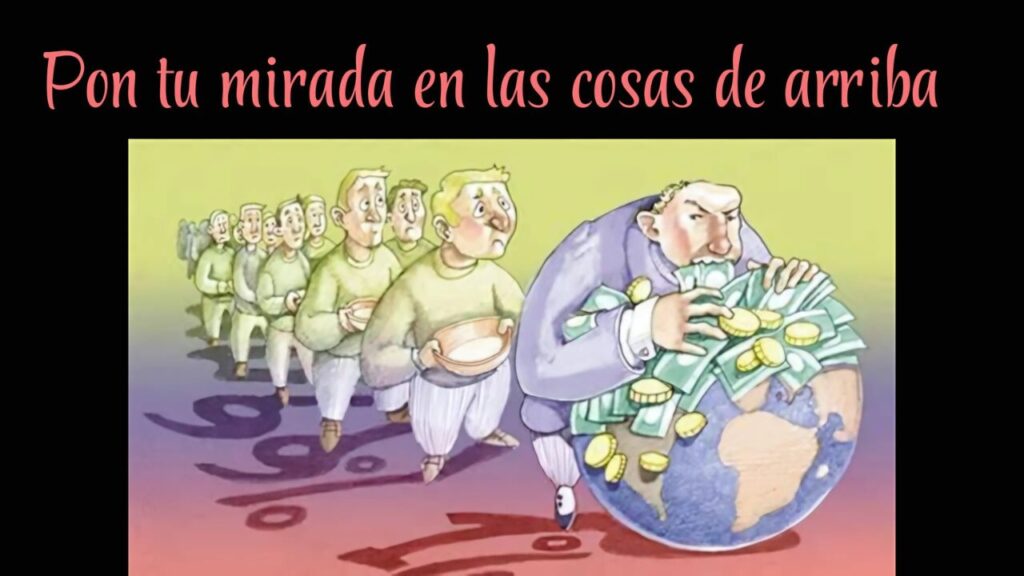Hosea 11:1-11; Psalm 107:1-9, 43; Colossians 3:1-11; Luke 12:13-21
Eighth Sunday after Pentecost – Proper 13 – Sunday – August 3, 2025
In today’s Gospel, Luke 12:13-21, Jesus warns us to be on guard against all greediness. You cannot live for God and live in greed. Jesus makes this point emphatically in the Parable of the Rich Fool. What does this parable teach us about life, death, and eternity? Let’s review it under two headings: The life of
wealthy man & the Dead of a foolish man.
The Life of a Wealthy Man: The main character of this parable is called “the Rich Fool” because he had a bad solution to a good problem.
Verse 17 says the rich man thought to himself, “What shall I do, for I have nowhere to store my crop?” The bumper crop created a dilemma for this rich man. He reaped so much grain that his barns did not have room to store it all. This is a good problem to have. Or is it? “What shall I do?” indicates more than the rich man’s confusion about where to store his grain. It expressed his great anxiety about his storage problems. Proverbs 10:22 says, “The blessing of the Lord makes rich, and he adds no sorrow with it.” This rich man’s blessing became a curse because of his self-centeredness. If he had shared his abundance, he could have remained rich while helping the needy.
The Death of a Foolish Man: Up to this point, the rich man is the only character in the parable. Verse 20 introduces a new character: God. When Jesus wants God to speak in a parable, he disguises him as one of the characters in the story – be it a king, master, nobleman, father, or shepherd. To show the futility of this rich man’s life, Jesus casts God as a guest appearance as himself. The rich man has had much to say in this parable. God has the last word in the end. “But God said to him, “Fool!”
The general law of accumulation represents a first articulation of categories that explain the tendency and mechanisms by which capitalist society generates poverty while, like no other mode of production, expanding the productive capacities and means of life available to eliminate it.
The apostle Paul, in his first letter to his young disciple, Timothy, had this to say: “For the love of money is a root of all kinds of evil. Simple reflection on this principle will confirm that it is true. Greed causes people to do all sorts of things they wouldn’t normally do. The love of money is what motivates people to lie, steal, cheat, gamble, and even murder. People who have a love for money lack the godliness and contentment that is true gain in God’s eyes.
In the Sermon on the Mount, Jesus said, “No one can serve two masters, for either he will hate the one and love the other, or he will be devoted to the one and despise the other. You cannot serve God and money” (Matthew 6:24). This verse comes at the end of a passage in which Jesus tells us to “lay up treasures in heaven” (v. 19).
Here, Jesus likens a “love of money” to idolatry. He refers to money as a “master” we serve at the expense of serving God. We are commanded by God to have “no other gods” before the only true and living God (Exodus 20:3; the first commandment). Anything that takes first place in our lives other than our Creator
God is an idol and makes us guilty of breaking the first commandment.
After this encounter, Jesus turns to His disciples and says, “Truly, I say to you, only with difficulty will a rich person enter the kingdom of heaven. Again, I tell you, it is easier for a camel to go through the eye of a needle than for a rich person to enter the kingdom of God” (Matthew 19:23–24). Jesus is saying that wealth is one of the biggest obstacles to coming to faith in Christ. The reason is obvious:
wealth becomes a slave master in our lives and drives us to do all sorts of things that drive us further and further away from God. The good news is that what is impossible for people, is possible with God (Matthew 19:26).
Since capitalism promotes this ideology of love of money, the church definitely has to be anti-capitalist. Although I am a firm believer that one day we should create relationships where money disappears. Or maybe we become rich people as Facundo Cabral, from Argentina, presented it: Rich is the person who needs the least. This is why I pray today, like Saint Augustine, saying: I desire little, and the little I desire, I desire little. Desiring little is not a mediocre attitude toward life; rather, it is an openness to receive the blessings, challenges, or experiences that present themselves to us with a receptive attitude, detached from frustrations and close to the virtues of what happens to us as what must happen.
From the reading from Colossians 3 we learn that God is telling us to set our minds on things above. We are encouraged to “Set your minds on things above, not on earthly things.” This is a call to focus on the eternal rather than the temporary.
Amen & Ashe
